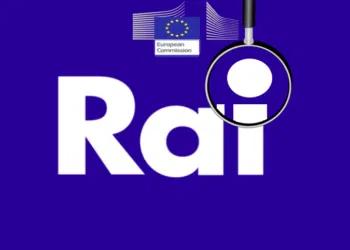Brussels – The Scurati case on Liberation Day from Nazifascism, the resignation of Carlo Fuortes as CEO of Rai, the new rules adopted by the government on the “par condicio”. Rai is increasingly Tele Meloni, and Brussels can no longer stand idle. The Federazione Nazionale della Stampa Italiana (FNSI) has asked the European Commission to “launch an investigation into these government attempts to harness the media and public information,” verifying that they comply with the new EU law on media freedom.
The letter delivered to the Vice-President of the EU Commission responsible for policies on values and transparency, Věra Jourová, is also signed by the European Federation of Journalists (EFJ), the International European Movement (EMI), the International Federation of Journalists (IFJ), the Media Diversity Institute (MDI Global), and OBC Transeuropa. The Continent’s major media organizations are defending the independence of the Italian public service.
“Giorgia Meloni’s government has been increasingly exerting its power over RAI, Italy’s national broadcaster, by ousting managers and TV hosts from their posts and by censoring programs that are critical of the government. Journalists and newspapers have been consistently attacked by members of the government, shutting down dissenting voices and hindering media independence.”
In recent months tensions at Rai came to a head after the cancellation of an anti-fascist speech by Antonio Scurati on April 25, prompting Usigrai to call a five-day public service journalists strike on May 5. Concern about the autonomy from politics and government were already highlighted in a statement, with anchors of the main national news stations making an exceptional move by reading it.
On March 26, the EU Council gave the final green light to the Media Freedom Act, the new European law to protect journalists and press freedom, which – among other things -establishes stricter rules to ensure the editorial independence of public media. To avoid excessive parceling out of public media outlets, their managers and board members will have to be selected for a sufficiently long term “based on transparent and non-discriminatory procedures” and cannot be fired before the end of their contract unless “professional requirements are lacking”, the new regulation reads. In the vote by the European Parliament, Lega and Fratelli d’Italia chose to abstain.
Based on the provisions of the Media Freedom Act and in line “with the fundamental values of the European Union enshrined in Article 2 of the Treaty on the EU”, the FNSI and European and international organizations are calling on Brussels to “launch an investigation” and “ensure a level playing field during campaigns for European Parliament elections to allow for fair and equal participation of all different political forces in the media”.
English version by the Translation Service of Withub






